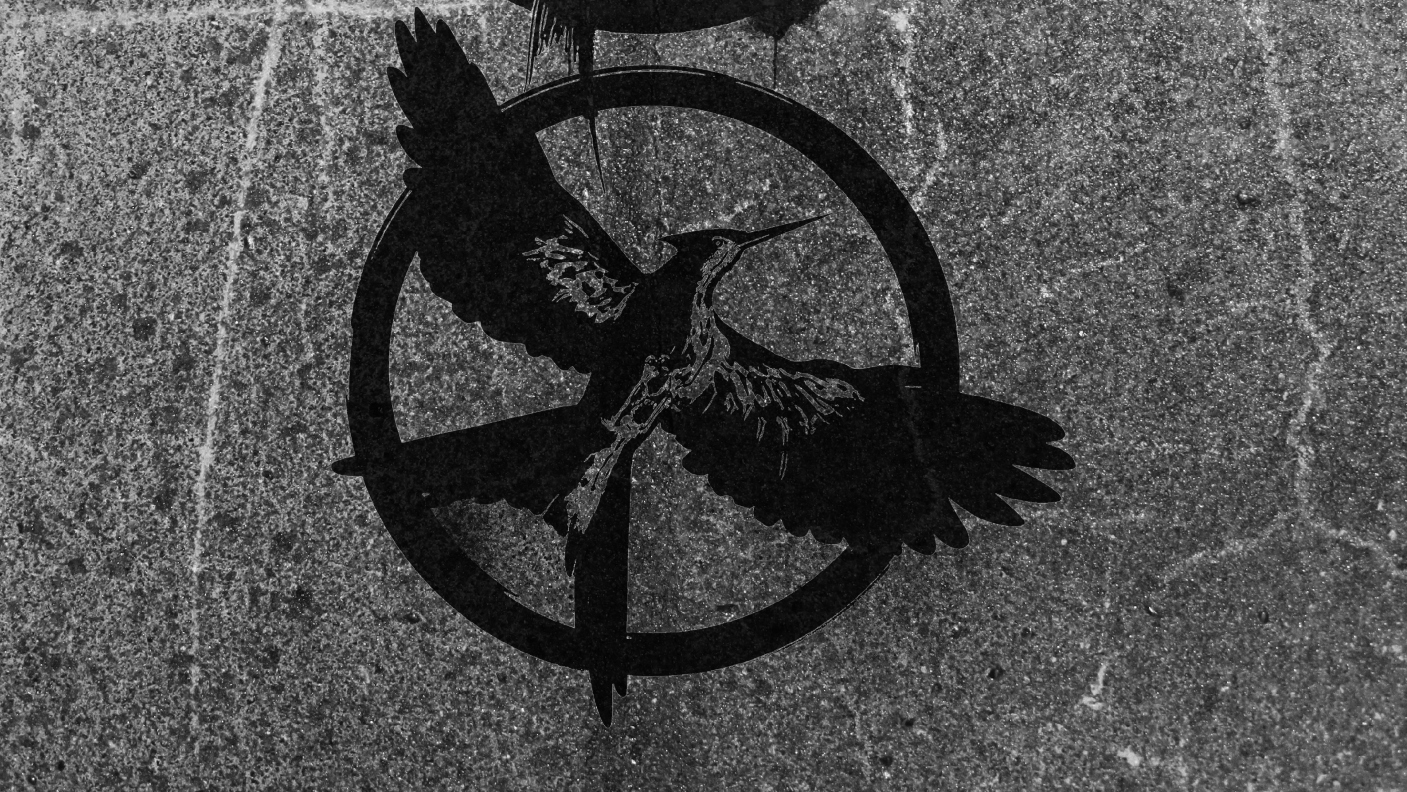
November 18, 2015, by Guest Blogger
The Hunger Games: Mockingjay – Part 2: Katniss and the Ideal Rebel
Ibitsam Ahmed from our School of Politics and International Relations reflects on Katniss Everdeen and her role as the ideal rebel.
In The Hunger Games quadrilogy, Katniss Everdeen embodies the persona of the Mockingjay, the symbolic Girl on Fire at the heart of the revolution against the oppressive Capitol. Starting off as the unlikely and accidental rebel in The Hunger Games, she gradually grows into the role of the central– or at least the most visible – figure in The Hunger Games: Catching Fire before actively engaging with the rebellion in The Hunger Games: Mockingjay – Part 1. (Yes, it really is a sign of the times that a film needs both a colon and a dash to get its point across in the title!)
With Part 2 bringing the series to a close this week, it is inevitably going to look at the completion of both the rebellion and Katniss’s personal story arc. But where the former is a relatively simple win-or-lose result that is carried out through the cinematic wonder of CGI, set pieces and gruelling stunt action, the latter provides one of the less palatable aspects of fiction – and in a fictional universe that involves children killing other children, that is a worrying thing to say.
For all her rough edges, personal agency and “normalcy”, Katniss’s selection as the mouthpiece of the rebellion still relies on notions of perfection dictated by social norms. Before delving into this further, it is important to stress that this is not a criticism of how her character itself is portrayed. She decides her own fate, she is clearly a capable fighter and hunter, and she organically grows into the role of leader.
Katniss as the ideal feminine rebel
However, there is no denying the fact that the forces that manipulate her manifestation into the Mockingjay still rely on problematic standards. Despite her hardiness, she is consciously moulded into a hyper-feminine myth. While this is understandable, indeed, desirable, in the context of the pageantry in the Capitol – which also provides a scathing critique of consumerism and body image – it is harder to digest in the grounded reality of District 13. Despite the conflict having distinctly taken on a militaristic nature and despite Katniss’s clear skill as an archer, her image is still given precedence. The trailers for Part 2 show a similar obsession with her appearance, including in clips that are clearly taken from battle sequences. Less Artemis and Atalanta and more Helen, if you please.
This also raises the question of why Katniss, clearly hesitant at the start of the series, is considered a worthier emblem than Johanna, a character with a clear distaste for the Capitol who is equally proficient as a warrior and arguably better as a leader, or President Coin, who has been an architect of the rebellion since before Katniss got involved. A case could even be made for Katniss’s sister Prim, since she could stand as a “pure” or “innocent” childlike symbol, much as Rue would have had she survived the first film.
The reality is that Katniss represents that part of the female character spectrum that is least objectionable. Unlike Johanna and Coin, she is not too tough to be seen as “unlikeable” – a character trait that is inconsequential for their male counterparts, such as Haymitch or Plutarch, or even Gale. Unlike Prim, she is not too pacifistic or personable to be seen as a liability – something that does not seem to affect how people view Peeta or Beetee.
Much the same way that women in the real world have to straddle certain lines in order to appear reliable – and this covers a range of roles, from politicians to witnesses in criminal cases – Katniss is the perfect rebel because she fits a preconceived ideal. Whether this is a reason to criticise the franchise or is a critique of society in itself depends greatly on how these aspects are handled in the final instalment.
(These questions are handled, to an extent, in the books, but this blog post has chosen to avoid spoilers ahead of the final film’s release.)
No comments yet, fill out a comment to be the first

Leave a Reply